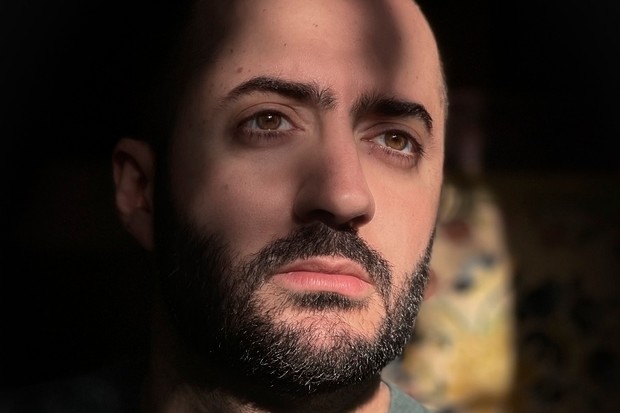Francia / Marocco / Belgio / Qatar
Kamal Lazraq • Regista di Les Meutes
“Questo è un film marocchino: è tragico, burlesco, incredibile, a volte violento, a volte mistico"
- Arriva nelle sale francesi il primo lungometraggio del cineasta marocchino, un film che si immerge nei bassifondi Casablanca e vincitore a Cannes del premio della giuria Un Certain Regard

Questo articolo è disponibile in inglese.
Hounds [+leggi anche:
recensione
trailer
intervista: Kamal Lazraq
scheda film], the gripping debut feature film by Morocco’s Kamal Lazraq (who graduated from the Paris-based film school La Fémis in 2011), scooped the Un Certain Regard Jury Prize at the 76th Cannes Film Festival and is hitting French cinemas on 19 July, distributed by Ad Vitam.
Cineuropa: Hounds takes place over the space of a day and most importantly, one night. What attracted you to a story unfolding across a restricted time period?
Kamal Lazraq: In my short film L’homme au chien, all the action took place over the space of a night, too: a young man had his dog stolen and he thought it might be the dog fighting gangs who’d taken him, so he looked for it all night in the different areas of the Casablanca slums. That timescale of one night helps to introduce a sense of intensity: we’re together with the character, we don’t really have any time to think and we very quickly develop a rather physical relationship with the film. I wanted to develop it into a longer form by way of Hounds. I also found the underground setting of dog fights quite a powerful metaphor because it’s also where men fight to try to survive; people who often come from disadvantaged backgrounds and are there to try to earn a living, men who sometimes kill one another for pretty trivial reasons. All of those things joined together with various other inspirations, and that’s how the idea for the feature film came about.
This time, the story revolves around a father and son. Why this choice?
Working with non-professional actors, I meet lots of people who tell me what they’ve been through. While I was casting for a previous short film, I crossed paths with two people who were working together at the time, who were the right age to be a father and a son, and who’d told me about how they took on a succession of odd jobs and how, sometimes, if they accepted a slightly more risky job that the others, they could end up trapped in a downwards spiral. I didn’t choose them for the film, but their story stayed with me. It made me think of Bicycle Thieves by Vittorio De Sica, wandering through the town where a father and son live to try to sort out their problems. So I started to write about a father and son who were trying to survive from one day to the next and who found themselves trapped in a nightmare, in something that was totally beyond them. In that sense, the film had quite a documentarian starting point, and I developed it from there. In Morocco, our relationships with our fathers are pretty sacred; what our fathers say and their authority is hard to contest. So in the film, the son goes along with the father, even when his decisions are blatantly bad, but I did want there to be a tipping point and for the son to take control at a given point; for there to be a reversal halfway through the film.
To what extent did you want to depict the margins of Moroccan society?
The beginning of the film anchors the characters in a specific social reality. We see that they come from poor neighbourhoods, that they’re trying to survive and that they’ll accept work in order to earn a crust, but then the film moves away from that a little: we enter more into film noir territory, with a succession of twists and turns coming at breakneck speed. But every sequence, through its subtext, delivers clues which help paint the portrait of one particular social reality in Casablanca: survival, faith and superstition, fear of being cursed, the fact that nothing comes for free, every character we come across tries to get something from the two protagonists.
Neo-realism, film noir, American cinema of the ‘70s… Hounds is reminiscent of all kinds of film heritage. Which influences were you looking to blend together?
The starting point was pretty neo-realist. I’ve mentioned Bicycle Theives, but I also had The Procurer in mind, by Pasolini, in terms of faces and lost characters who are trying to get by in the city suburbs. But I also wanted the film to move away from social realism and more towards the dreamlike, with touches of the absurd and comedy. It’s still a Moroccan film though, that’s firmly anchored in the reality of Casablanca, so it’s the city and its nights which inspired me: it’s tragic, funny, weird, sometimes violent, sometimes mystical. The film’s style is deeply rooted in this very particular local reality.
What will your next project be?
I’ve started writing it. It will involve non-professionals again, using the same method, but it will be a little bit different, less of a genre film; not a love story but near enough.
(Tradotto dal francese)
Ti è piaciuto questo articolo? Iscriviti alla nostra newsletter per ricevere altri articoli direttamente nella tua casella di posta.















